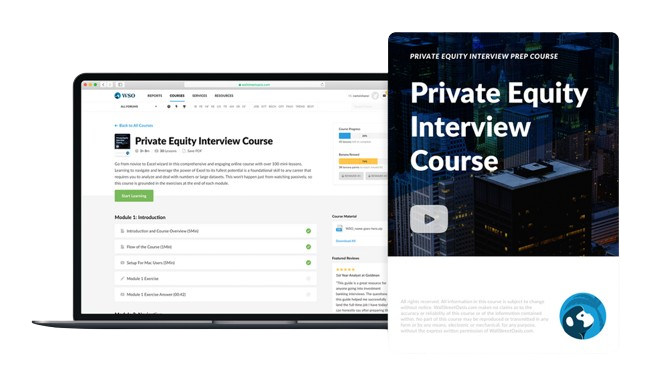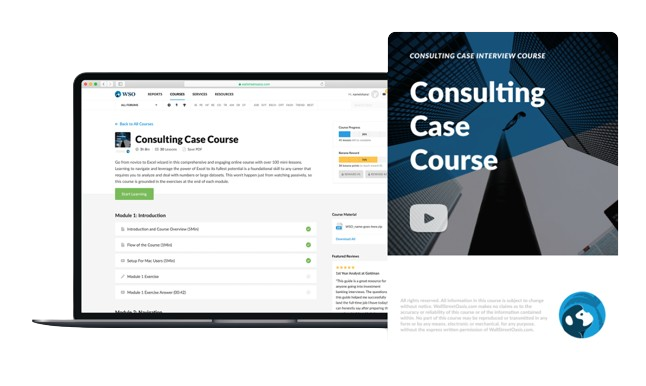Software Engineer Salary Guide
A computer scientist who possesses the knowledge of programming languages and engineering principles.
What Is A Software Engineer?
A software engineer (SWE) is a computer scientist who possesses the knowledge of programming languages and engineering principles to:
- Build software products
- Develop computer games
- Run network control systems
Software engineering is the systematic approach to designing, developing, testing, and maintaining software. You have probably heard a lot about it but don't know what it is and the salary it offers.
Software engineers are often called 'software developers,' though the roles may vary based on specific tasks and responsibilities.
The US Department of Labor stated that as of 2020, 1 million people were working in this field. Moreover, the occupation is projected to have a promising future due to the increasing reliance on smart devices and technological advancements.
This career path would be advantageous if you enjoy solving problems and making digital products easy to use. Moreover, the job offers continuous challenges and opportunities for innovation due to the ever-evolving nature of technology.
Key Takeaways
- Software engineers are computer scientists who design, build, and maintain software products, computer games, and network control systems, crucial for various industries.
- Two primary types are Application Software Developers, focusing on end-user software, and Systems Software Developers, responsible for software controlling hardware and providing platforms.
- The median salary is $124,200 per year, with variations based on experience. Top-paying skills include OS Kernels, Big Data, Microservices, and Machine Learning.
- Software engineers require proficiency in coding languages like Python, Java, or C++, along with knowledge of operating systems, cloud computing, and agile project management.
- Leading employers include Meta, Salesforce, Apple, Google, and Amazon, offering competitive compensation packages.
What Are the Types of Software Engineers?
Software engineering is a broad field. Developers possess various technical skills such as:
- Building computer information systems
- Maintaining network security
- Creating customer-facing web pages
Overall, there are two primary types of software developers:
1. Application Software Developers
The work of this type of developer is more client-focused. The primary responsibilities of application software developers are:
- Design software for the end-user to interact with
- Conduct requirements analysis
- Tweak software and release updates regularly
- Develop applications for Windows, iOS, Android, Linux, and more
These developers work with graphic designers, marketers, project managers, and customer success staff.
2. Systems Software Developers
The systems software developers are responsible for creating and maintaining software that controls the hardware and provides a platform for running application software. Their primary tasks include:
- Build networks and operating systems (OS) for user-facing applications
- Integrate disparate software products onto one platform
- Update to new technologies and maintain IT documentation
- Design and enforce IT standards
- Serve as systems architects or general IT managers
Note
Systems software developers collaborate with various stakeholders, including data science professionals, development teams, system architects, and management, to ensure the effective functioning of software systems.
Other Types
The above two types could also be considered too general. If you want to be more precise, six types of software developers are included in those two categories:
- Web developers: They are building websites via Wix and Square. They also work with CMS platforms like WordPress, Drupal, and Joomla
- Front-end developers: JavaScript developers working with websites at a more advanced level
- Back-end developers: They primarily work on the logical side of business operations. They are making the process easier for the firm. The main languages are:
- JavaScript
- Java
- Python
- PHP
- C#
- Ruby
- Full stack developers: They are a symbol of Front-end and Back-end developers
- Mobile App Developers: As the name suggests, they build apps for smartphones we use daily. They can write native apps for iOS (on Swift and Objective-C) and Android (on Java and Kotlin). They can also build a cross-platform app on C#, Dart, and JavaScript
- Desktop App Developers: They make desktop applications for Windows, macOS, Chrome OS, Linux, and other operating systems
Software Engineer Salary in the United States
According to the Bureau of Labor Statistics, the median salary in the US is $124,200 per year or $59.71 per hour. Salaries by years of experience in the US are:
| Years of Experience | Average Salary per Year |
|---|---|
| Less than 1 year (Entry Level) | $111,754 |
| 1 to 2 years (Early Career) | $114,816 |
| 3 to 5 years (Mid Career) | - |
| 6 to 9 years (Late Career) | $131,326 |
| More than 10 years (Experienced) | $150,455 |
Source: Indeed
"OK, but what are software engineers' best-paid skills and qualifications?"
Companies such as Adobe, Nike, Wealthfront, Amazon, and Dynata are hiring more engineers with this skill set. Let us take a look at more critical skills and qualifications that pay well:
| Top Fields of Study | Salary | Job Openings | Companies |
|---|---|---|---|
| Engineering Management Degree | +78.42% | 2 jobs | 3 |
| Business Information Systems Degree | +66.20% | 14 jobs | 19 |
| Mechanical Engineering Degree | +36.77% | 63 jobs | 91 |
| Electrical Engineering Degree | +6.71% | 683 jobs | 1,493 |
| Engineering | +5.58% | 705 jobs | 1,490 |
| Medical Degree | +10.16% | 200 jobs | 415 |
Source: Indeed
| Top Skill | Salary | Job Openings | Companies |
|---|---|---|---|
| OS Kernels | +17.55% | 512 jobs | 1,244 |
| Big Data | +17.35% | 398 jobs | 1,005 |
| Microservices | +16.13% | 635 jobs | 1,496 |
| Machine Learning | +11.71% | 989 jobs | 3,190 |
| Data Structures | +10.99% | 1,103 jobs | 4,655 |
Source: Indeed
Skills Needed
Overall, you need to have the following skills to be successful in this field:
- Operating systems
- Coding languages like Python, Java, C, C++, or Scala
- Cloud computing
- Object-oriented programming
- Design testing and debugging
- Database architecture
- Version control
- Agile and Scrum project management
- Attention to detail
Top companies for Software Engineers in the US
According to Indeed, the following five companies are considered the top employers:
- Meta ($163,909 per year)
- Salesforce ($156,580 per year)
- Apple ($151,021 per year)
- Google ($148,194 per year)
- Amazon.com ($135,350 per year)
Other prominent employers are Microsoft, Capital One, Cisco Systems, IBM, and Oracle.
You might think there's no point working there since the salaries are too low compared to other jobs. Before judging, let us give you another piece of the overall picture. We are talking about the total compensation structure. The total compensation consists of the following:
- Base salary (in most websites and official statistics, you see this figure only)
- Bonuses (could be 5-30% of your base salary)
- Long-term incentives (something that may only be convertible into cash at a future date, like restricted stock units, stock options, or other similar payments)
Google Example
Let us take the example of Google. The compensation varies by the level of hierarchy, scope, and responsibility of the employee in the company. Those in levels 1 and 2 are typically entry-level employees with little work experience.
According to Levels Fyi, the average compensation by the level at Google is the following:
| Level Name | Total | Base | Stock (per year) | Bonus |
|---|---|---|---|---|
| L3 SWE II – Entry Level | $191K | $142K | $40K | $9K |
| L4 SWE III | $275K | $177K | $79K | $19K |
| L5 Senior SWE | $361K | $204K | $79K | $29K |
| L6 Staff SWE | $521K | $264K | $214K | $42K |
| L7 Senior Staff SWE | $729K | $268K | $360K | $74K |
| L8 Principal Engineer | $1.18M | $338K | $722K | $120K |
| L9 Distinguished Engineer | $2.29M | $363K | $1.76M | $161K |
The total compensation (Salary + Bonuses + Stocks) range for each seniority level is the following:
| Level Name | Total Compensation Range |
|---|---|
| L3 | $150,000 - $250,000 |
| L4 | $210,000 - $360,000 |
| L5 | $280,000 - $488,000 |
| L6 | $363,000 - $660,000 |
| L7 | $500,000 - $957,000 |
| L8 | $710,000 - $1,273,000 |
The stock type discussed here is called restricted stock units (RSUs). Google refers to it as "Google Stock Units (GSUs)." The vesting schedule varies depending on the number of stocks you receive:
- Annually (if less than 32 GSUs)
- Semi-annually (32-63 GSUs)
- Quarterly (64-159 GSUs)
- Monthly (160+ GSUs)
Highest paying US cities for Software Engineers
According to Indeed, the highest-paying US cities are the following:
"Could you please explain the career perspectives of several regions?" Sure. We will talk about the seven regions of the US. Here is the data based on Hack Reactor:
1. Northeast
One of the regions with competitive salaries. The best states of the region include:
- New York
- District of Columbia
- Virginia
- Maryland
- Massachusetts
- New Jersey
- Delaware
- New Hampshire
- Rhode Island
All of these states offer salaries from $107K - $135K. This salary might be decent or considered the bare minimum, depending on where you live.
2. South
The South region has the following leading states:
- North Carolina
- South Carolina
- Georgia
- Alabama
- Florida
These states offer the third most competitive salaries after the Western and Northeast regions. However, the pay might be low in Kentucky, West Virginia, Arkansas, Tennessee, Louisiana, and Mississippi.
Note
Although these states offer lower salaries, the cost of living is much lower. Thus, it gives you a chance to have a higher difference between your income and expenses.
3. Upper Midwest
Most states in this region offer $90,000 to $107,000 salary. In Illinois and Minnesota, you have more chances to have a six-figure salary. North and South Dakota offer you the lowest range of wages.
This region is considered one of the most affordable regions.
4. Lower Midwest
This region pays a lower salary compared to the nationwide average pay. Kansas, Nebraska, Iowa, and Missouri are the states with rising wages and opportunities. Still, Oklahoma offers the lowest payment in the region, whereas Texas is in the lead for the highest.
This region has the best balance between pay and the cost of living. Most states are on the list of the most affordable salaries in the US. Although some metro areas could be too expensive, the region will still be inexpensive.
5. Rocky Mountain
Colorado is the dominating state in this region. The Denver and Boulder areas attract many tech companies and qualified employees. Arizona and Utah also offer great job opportunities for engineers. Remember that New Mexico State is at the bottom of the salaries list.
Note
New Mexico also has a low cost of living due to its lack of opportunities. On the other hand, non-metro areas in Colorado are highly affordable for many people.
6. West
California, Washington, and Oregon offer you the most incredible opportunities in the US. The cost of living reflects that. The first most expensive state is California, with the second on the list being Oregon.
If you want to enjoy rising salaries and have some affordability, you better work in Idaho.
7. Alaska and Hawaii
You can easily find a job with a six-figure (>$100,000) annual salary in both states. The only problem would be the cost of living. Unfortunately, these are the most expensive states, twice as high as the national average living expenses.
How to Become a Software Engineer
There are several steps to becoming a software developer.
1. Determine your path
This is the first step you have to take if you want to start any kind of career. If you don't know your goal, how will you achieve it? You will be like a lost ship in the ocean. Here is the list of specializations in software engineering:
- Web Developers
- Front-end Developers
- Back-End Developers
- Full-Stack Developers
- Mobile App Developers
- Desktop App Developers
You might choose one occupation over another based on your skills and wants. Imagine your dream job, ideal working hours, the most appropriate corporate culture, minimum salary, and work mode (remote or at the office).
2. Learn skills
Earning a bachelor's degree in computer science, information systems, or engineering typically takes four years. It can provide a strong foundation for a career in software engineering, but it's not the only path.
You can also study computer science and other relevant courses in community college. That way, you can transfer to computer development, but remember that these ways are not the only ones to get the foot in the door: another way is to get into a boot camp.
You study practical, language-specific skills and information technology fundamentals in a boot camp. The duration of boot camps typically ranges from 8 to 24 weeks, depending on the program and curriculum.
Note
If you don't have time for a degree or boot camps, you can get individual courses and study them at your own pace. You can pick any courses that are aligned with your interests.
The following certifications are the most in-demand ones:
- Certified Software Engineer
- Certified Software Development Professional (CSDP)
- Microsoft Certified: Azure Fundamentals
- C Certified Professional Programmer (CLP)
- C++ Certified Professional Programmer (CPP)
- AWS Certified Developer
3. Take programming projects and build your portfolio
If you want to get a job as an engineer, you've got to work as an engineer. Build your coding portfolio, a website that shows potential employers your credentials and professional experience. You have to include the following information about yourself:
- Education
- Certificates
- Programming projects
- Samples of your work (with screenshots)
Note
It's advisable to update your portfolio regularly as you gain more experience. Consider enhancing your portfolio with illustrations and animations to showcase your creativity and skills.
4. You should create your resume and apply to your first job
Creating a strong resume is one of the most critical steps in securing a software engineering job. After finishing your resume, you should submit it to job search websites such as Indeed, Glassdoor, and JustTechJobs (tech-specific job search engine).
Consider including the following sections in your resume:
- Education
- Programming languages
- Specialization areas
- Professional certifications
It's beneficial to tailor your resume to the specific position or company you're applying to, increasing your chances of success.
Software Engineer Salary Guide FAQs
The engineers with management skills and experience are paid the highest. The managerial positions could be:
- Staff engineer
- Senior staff engineer
- Principal engineer
It depends on your efforts. It might take four years to go with a traditional bachelor's degree in computer science. On the other hand, studying the intensive boot camps and individual courses might even get a job in six months, so it all depends on you.
Three factors formed a high salary for this occupation:
- Limited supply for its demand
- High responsibilities
- The effort to be adaptive
The job is quite technical and requires computer science skills (acquired via either a bachelor's degree or a specialized training program). In the beginning, it might be challenging. But, once you get comfortable with it and have practical skills, you can get a job quickly.
Researched and Authored by Almat Orakbay | LinkedIn
Free Resources
To continue learning and advancing your career, check out these additional helpful WSO resources:











or Want to Sign up with your social account?